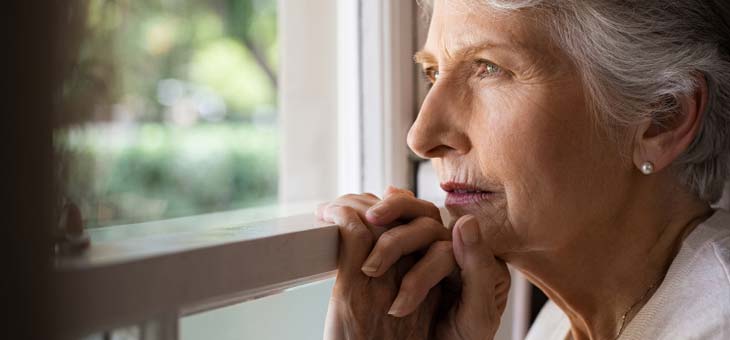Talk of relaxed restrictions, the possibility of coming out of lockdown and suggestions for getting the economy back on track will mean little to those most at risk and least likely to be let out of isolation any time soon, says UK psychotherapist Dr Noel McDermott.
People over 70, those with comorbidities and other shielded groups may be in isolation indefinitely, possibly until a vaccine is produced.
The lock-in will lead to increasingly anxious and unsettling times for older people.
And anyone with health and social care vulnerabilities that require additional care and support will likely suffer the most anxiety, especially those worried about carers and services not being available due to staffing issues, reduced access to equipment and medicines and general fear of infection.
“The shielding of the elderly that can come from these types of concerns is putting a lot of strain on them and their relationships to loved ones, to children and grandchildren,” says Dr McDermott.
“Loneliness was already one of the biggest issues facing the ageing pre-coronavirus and now is at much higher levels. Loneliness is in itself a mortality factor.”
“We need to equip our elders with more effective tools and resources to help manage anxiety, depression and trauma by increasing access to evidence-based therapies. While the main part of society works through its anxieties about going back to work, we have to have a clear program in place to help elders and others shielded deal with being left at home.”
Dr McDermott suggests the following practical means of reducing anxiety in those who face an indeterminate time in lockdown:
- Help by looking for the positive and looking for gratitude and sharing this. These positive psychology tools help those who have and are experiencing trauma form meaning from it and positively grow and learn lessons rather than develop PTSD symptoms.
- Encourage personal strength by drawing on life experience in the elder to demonstrate how they have been through challenges and survived.
- Be realistic about the risks and the timescales involved, dashing inflated hopes of rapid change will cause more harm than being honest about the real challenges ahead.
- Learn practical psychology tools such as CBT and share that learning with your elder to help them manage anxiety and depression better.
- Organising visits be it real world (with social distancing measures in place), or online by loved ones and friends. They don’t have to be long as it will often be enough to show you care.
- Provide support to carers and family so they are able to spot the signs of psychological distress and can raise the alarm to get professional help.
He also shared some warning signs to watch for when your loved one is struggling:
- Mood shifts that are sudden and significant, and that stay.
- Cognitive distortions and increased difficulties in concentration and memory. Displaying thinking that is rigid, black and white, and out of proportion to reality.
- Overt signs of distress such as becoming more tearful.
- Dysregulation of affect, particularly in loss of temper, irritability and inability to display affection.
- Becoming withdrawn and quiet.
- Significant changes to sleep patterns, appetite, loss of energy and listlessness.
- Thoughts of wanting things or life to end, and inability to see a future.
“What’s clear is that we are going to have to be dealing with this situation for some time to come, so we need to adapt to this as the normal and help our elderly more effectively deal with this,” said Dr McDermott.
“It’s important to contain fears about the virus and respond positively where we can to the changes that have happened and will need to stay in place. Working with a growth and positive mindset will help reduce the traumatic impact of the current situation.
“Getting the aged involved in decisions about care and quality of life decisions has always been central to ensuring care that is respectful and minimises the unhelpful dependencies developing psychological distress. This is more important now than ever. Respecting and acting on the decisions and wishes of elders in the formulation and delivery of their own care is paramount.”
What are you doing to avoid anxiety in lockdown? How are you helping your friends and family who may be doing lockdown tougher than others?
Why not tell us how you envisage life in a post-pandemic world by answering our survey? You could win a $500 Webjet gift card!
If you enjoy our content, don’t keep it to yourself. Share our free eNews with your friends and encourage them to sign up.
Related articles:
Lockdown poses silent health risk
Ten questions raised by COVID-19
How green can lift your mood

